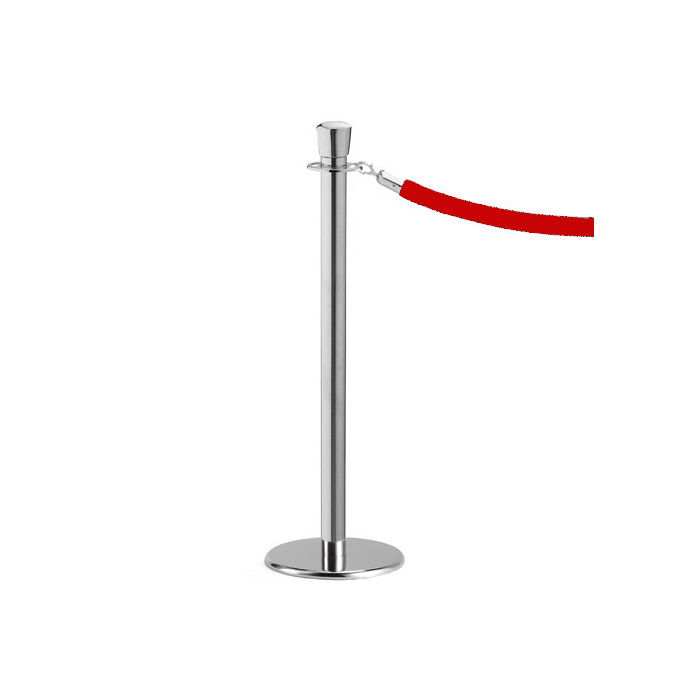The 5 Most Important Factors in Crowd Control

When it comes to effective crowd control, there are five key factors that play a vital role in ensuring a safe and well-managed event. These factors include the presence of trained security personnel, the expertise of event organizers and planners, thorough risk assessments, preparedness for potential dangers such as sudden weather changes, and effective crowd control strategies for managing large crowds at events. Trained security personnel are essential in maintaining order, responding to any security threats, and ensuring the safety of attendees.
Event organizers and planners contribute by coordinating logistics, implementing crowd control measures, and creating a safe environment. Conducting thorough risk assessments helps identify potential hazards and implement appropriate preventive measures. Being prepared for sudden weather changes is crucial to protect the well-being of participants. By addressing these factors, event contractors and planners can successfully execute safe and enjoyable special events with effective crowd control measures in place.
Here are the 5 most important factors in crowd control:
When it comes to crowd control, there are five key factors that are essential for ensuring a safe and well-managed event.
- Safe Event: The safety of attendees is of utmost importance in crowd control. This includes implementing measures to prevent accidents, addressing potential hazards, and having emergency response plans in place. By prioritizing safety, event organizers can minimize risks and create a secure environment for everyone involved.
- Event Planning: Proper event planning is crucial for crowd control. This involves considering factors such as venue selection, crowd capacity, and logistics. Through careful planning, event organizers can anticipate potential challenges and develop strategies to effectively manage crowds.
- Crowd Management Plan: A well-designed crowd management plan is a key component of successful crowd control. This plan outlines strategies for crowd movement, communication protocols, and contingency plans for emergencies. It serves as a blueprint for event organizers and security personnel to ensure a smooth and controlled flow of the crowd.
- Crowd Management Strategies: Effective crowd management strategies are vital in maintaining order and minimizing disruptions. This can include techniques such as crowd engagement, clear communication, crowd monitoring, and proactive crowd guidance. By employing these strategies, event organizers can navigate crowd dynamics and prevent conflicts from arising.
- Crowd Control Barriers: The use of crowd control barriers is an important physical tool in crowd control. Barriers help guide the flow of the crowd, create designated areas, and prevent overcrowding. They serve as visual cues and physical boundaries, enhancing crowd management efforts and maintaining order.
By addressing these five factors, event organizers can successfully implement crowd control measures, ensuring the safety and enjoyment of attendees. Effective crowd control not only creates a positive experience for participants but also enhances the overall success of the event.
Best Practices for Crowd Control at Events
When it comes to managing crowds at events, implementing best practices for crowd control is crucial to ensure the safety and order of participants. Event planners, promoters, and venue managers must work together to address the practicalities of crowd management and prioritize the well-being of event participants and staff. By considering potential risks, implementing effective security measures, and providing appropriate training, event organizers can create a safe environment and minimize the chances of dangerous situations arising.

- Thorough Event Planning: Event planners and promoters should carefully consider the event type, venue, and expected crowd size when developing a crowd control strategy. Understanding the dynamics of the event and anticipating potential crowd behaviors is essential for effective crowd control.
- Well-Trained Event Staff: Event staff, including security teams, venue staff, and medical and emergency services, should be adequately trained to handle crowd management. This includes knowledge of safety protocols, crowd control techniques, and efficient communication skills.
- Assessing Potential Risks: Conducting a comprehensive risk assessment helps identify potential safety issues and allows for proactive measures to mitigate these risks. Consider factors such as crowd surge, the structural integrity of temporary setups, safe capacities, and any specific risks associated with the event.
- Adequate Security Measures: Implementing appropriate security measures, including the presence of security personnel, surveillance systems, and access control points, contributes to crowd control efforts. Regularly reviewing and updating security protocols helps maintain the safety of both participants and staff.
- Communication and Crowd Behavior: Effective communication plays a vital role in crowd control. Event organizers should provide clear instructions to participants, ensuring they are aware of safety protocols and expectations. Understanding crowd behavior can help anticipate potential issues and enable early intervention.
- Medical and Emergency Services: Having medical aid services and emergency response teams readily available is essential. Event organizers must ensure that medical services are easily accessible and that staff are trained in first aid and emergency procedures.
- Staff Safety: Prioritizing staff safety is crucial for successful crowd control. Event organizers should provide appropriate training, protective equipment, and support systems to ensure the well-being of staff members who are responsible for managing the crowd.
- Crowd Control Techniques: Implementing effective crowd control techniques, such as managing entry and exit points, creating designated areas, and utilizing crowd barriers, helps maintain order and prevent overcrowding.
- Continuous Monitoring and Adaptation: Constantly monitoring the crowd and being responsive to changes in behavior or circumstances is important. Event organizers should be prepared to adapt their crowd control strategies as needed to address emerging issues or changing dynamics.
- Evaluation and Improvement: After the event, conducting a thorough evaluation helps identify strengths and areas for improvement in crowd control practices. This feedback can inform future events, enabling organizers to enhance crowd control measures and ensure a safer experience for all attendees.
Overall, implementing best practices for crowd control at events is essential to ensure safety, order, and a positive experience for participants. By involving event planners, promoters, venue managers, and trained staff, event organizers can address potential risks, employ effective crowd control techniques, and provide assurance of safety.
Prioritizing continuous evaluation and improvement helps refine crowd control practices and contributes to the overall success of future events. By following these best practices, event organizers can create an environment that minimizes risks, effectively manages crowds, and prioritizes the well-being of participants and staff.
The Strategies you can use in a Crowd-Control Environment
In a crowd-control environment, implementing effective strategies for crowd control is crucial to maintain order, ensuring safety, and creating a positive experience for participants. Whether it is a public event, a concert, or any gathering with a large number of attendees, event organizers, and venue managers need to employ a range of strategies to effectively manage the crowd. By considering the event venue, and the type of event, allocating sufficient resources, and implementing appropriate crowd control measures, event organizers can mitigate potential issues and maintain a safe and controlled environment.
One of the primary factors to consider is the event venue. The layout and capacity of the venue play a significant role in crowd control. Understanding the venue’s design and potential choke points helps in devising an effective crowd management plan. Additionally, considering the specific type of event being hosted is crucial. Different events may have unique requirements and challenges. By tailoring crowd control strategies to the specific event type, organizers can address potential issues and ensure smooth operations.
Allocating sufficient resources is essential for successful crowd control. This includes having an adequate number of crowd control staff trained in effective crowd management techniques. These staff members play a vital role in guiding the crowd, managing entry and exit points, and responding to any potential incidents. By having a well-trained and properly equipped team, event organizers can minimize risks and maintain order in the crowd.
Choosing the appropriate form of crowd control is another important consideration. Depending on the event and the crowd dynamics, different strategies may be required. This can range from utilizing physical barriers, such as fences or crowd control barricades, to implementing crowd flow management techniques. Employing a combination of methods can help ensure the smooth movement and organization of participants.
Identifying and addressing potential issues in crowd control is crucial for effective management. Conducting an adequate crowd management assessment helps organizers identify potential risks and areas of concern. By assessing factors such as crowd density, entry and exit points, and potential bottlenecks, event organizers can develop a comprehensive plan for crowd management. This plan should include clear protocols and procedures for managing emergencies, as well as contingencies for unexpected situations.
Leveraging technology and applications for crowd control can also enhance effectiveness. Advanced crowd monitoring systems, ticketing solutions, and communication platforms can help organizers keep track of crowd movements, communicate important information, and address any emerging issues promptly. Utilizing technology can streamline crowd control efforts and enable quick response times.
Conclusion
In conclusion, employing effective strategies for crowd control in a crowd-control environment is vital for maintaining order, ensuring safety, and creating a positive experience for event participants. By considering factors such as the event venue, the type of event, allocating sufficient resources, and implementing appropriate crowd control measures, event organizers can mitigate potential issues and maintain a safe and controlled environment.
Alpha Crowd Control is a leading provider of crowd control solutions. We offer a wide range of products and services to help event organizers manage crowds safely and effectively. Our team of experts can help you develop a comprehensive crowd-control plan that meets the specific needs of your event.


